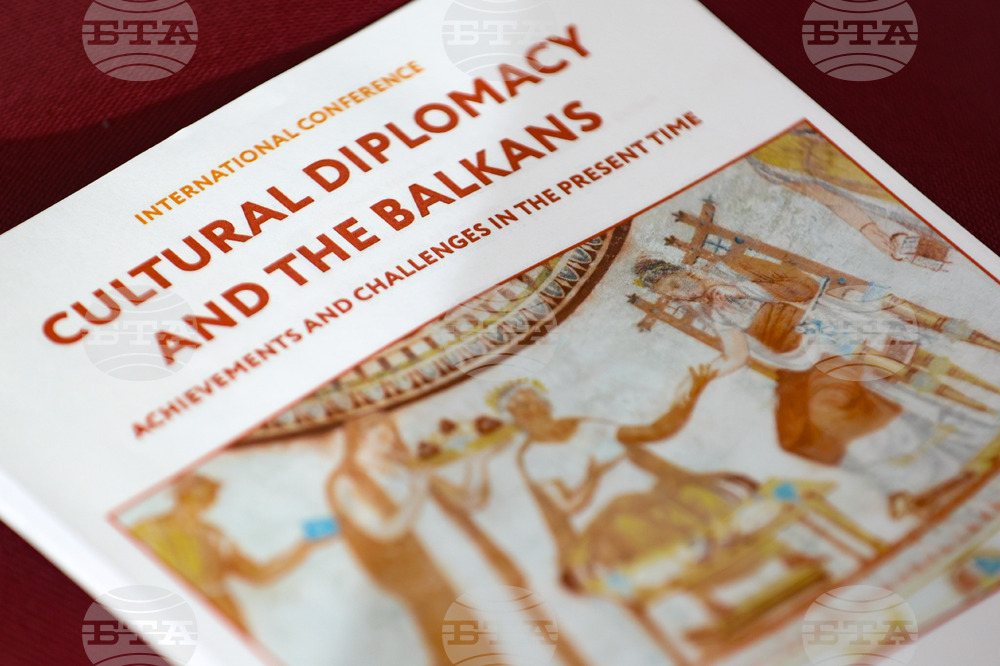site.btaSofia Hosts International Conference on "Cultural Diplomacy and Balkans"


An international conference on "Cultural Diplomacy and the Balkans: Achievements and Challenges in the Present Time" was held in Sofia on Wednesday. It brought together experts from four continents, including representatives of international organizations, the academic community, the cultural sector and private initiatives.
The conference was organized by the Bulgarian Academy of Sciences Institute of Balkan Studies and Centre of Thracology with the support of the Ministry of Culture and in association with the State Institute for Culture under the Foreign Minister and the National Art Gallery. The Bulgarian News Agency (BTA) was the media partner for the event.
In his opening remarks, Culture Minister Nayden Todorov highlighted the intrinsic connection between diplomacy and culture. Noting that the EU motto is "United in diversity," he said: "Culture is about accepting those who are different and being able to work, live and move forward with them. When we can do that, diplomacy will be successful always."
Balkan Studies Institute research coordinator Alexandra Milanova said that state borders are contrived, in a sense, because art and culture have no use for them. "Art and culture are the only spaces where we can interact, maintain dialogue and even disagree," Milanova said.
According to Deputy Foreign Minister Nevyana Miteva, "cultural exchange and people-to-people relations and contacts can be key to peace, tolerance and understanding." "Cultural diplomacy is among the most effective, yet underused, foreign policy instruments in international relations," Miteva said.
National Art Gallery Director Yaroslava Bubnova said the gallery owns a large collection of Bulgarian and foreign art. She said: "By definition, collecting and gathering, unlike other activities, are the result of diplomacy and negotiations. No museum was ever built without diplomatic skills, the abilities of negotiators and the fundamental concept that the world is much bigger than any separate location."
The first discussion panel was moderated by Snezhana Yoveva-Dimitrova, Director of the State Institute for Culture under the Foreign Minister. Leaders of international organizations, of which Bulgaria is a member, spoke about how cultural diplomacy and culture feature on their agendas.
EU National Institutes for Culture (EUNIC) Director Andrew Manning discussed the building of trust and international understanding through culture, and presented EUNIC's work.
Maryam Majid Al Saad, Secretary General of the Global Public Diplomacy Network (GPDNet), outlined the organization's prospects and achievements in the field of public diplomacy.
/MR/
news.modal.header
news.modal.text
